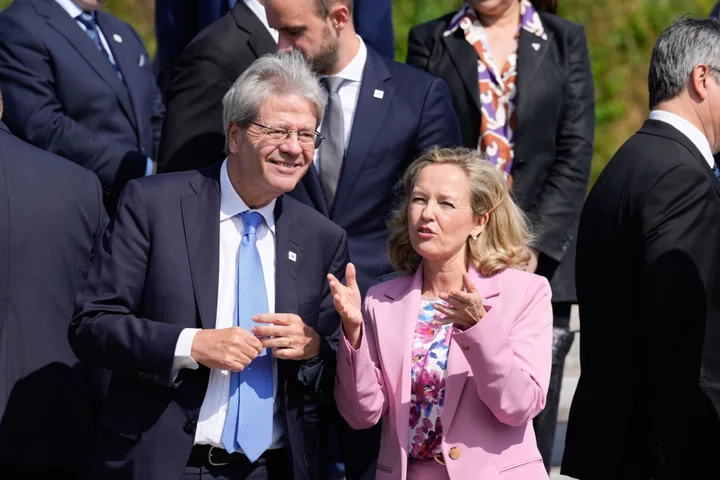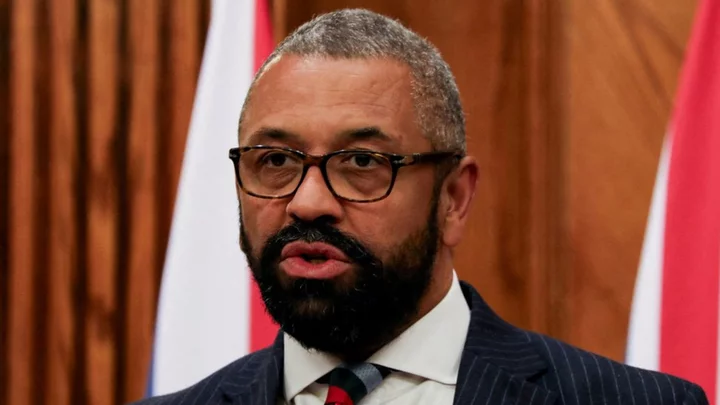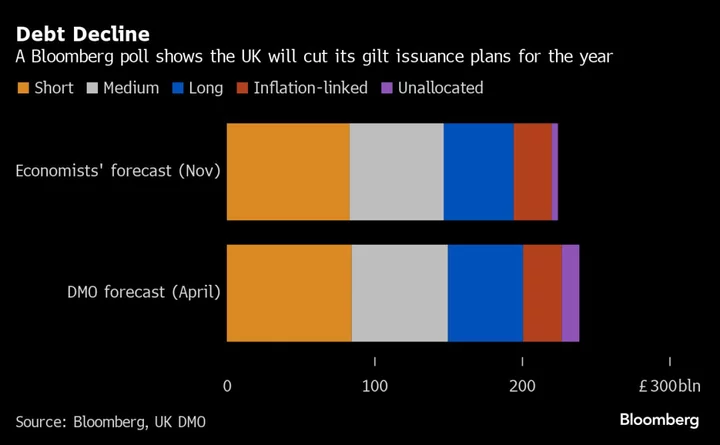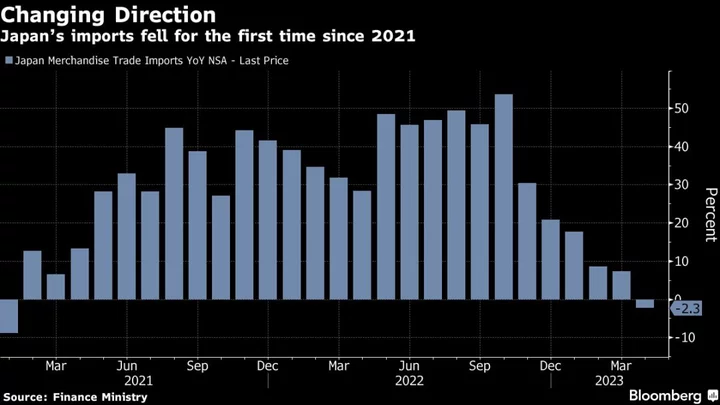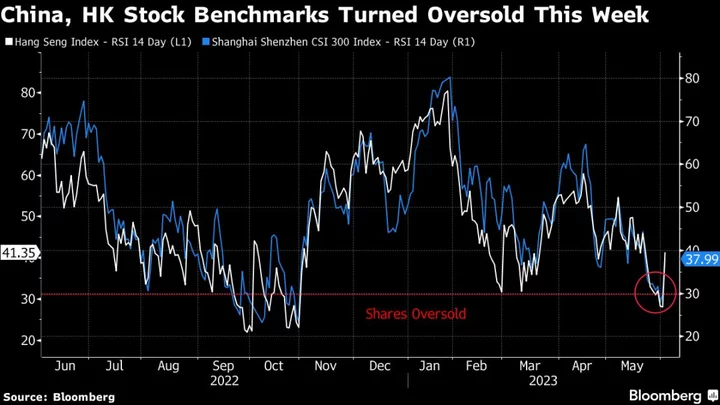European Union finance ministers are moving closer to an agreement this year on implementing new fiscal rules as Germany and Italy show readiness to compromise after months of sparring over how to rein in the bloc’s debt.
“There is a will to accelerate, to find an accord and to eventually reach a compromise,” Paolo Gentiloni, the EU’s economy chief, said on the sidelines of a meeting of finance chiefs in Santiago de Compostela, Spain on Saturday. “This is an important and positive development.”
This was echoed by Spanish Economy Minister Nadia Calvino, who told a news conference at the end of the event that member states have committed to agree on new fiscal rules this year. She earlier told reporters there is agreement on about 70% of the European Commission’s legislative reform proposals for the Stability and Growth Pact.
A key development in Santiago has been German willingness to consider options expressed by countries with higher debt levels like Italy that include allowing more leeway on certain investments for a limited time, according to two people familiar with the matter.
Italian Finance Minister Giancarlo Giorgetti proposed excluding items such as defense efforts to support Ukraine and certain EU recovery fund spending from deficit calculations, one of the people said. In return, Italy is open to a single common rule on debt reduction.
‘Fiscal Camino’
Still, EU Commission Vice President Valdis Dombrovskis told the news conference that ministers still face a challenging “fiscal camino,” in reference to the religious pilgrimage known as the Camino de Santiago, which ends in the northwestern Spanish town and attracts thousands each year.
The rules were suspended during the Covid-19 pandemic and then again until the end of 2023 due to Russia’s invasion of Ukraine to allow governments more leeway for crisis spending. They are due to be reinstated in January, and the EU’s executive arm wants member states to reach a deal this year.
The sticking point has been whether to apply automatic and uniform rules to all member states. The debate highlighted divisions between Germany and its allies who want less flexibility, and more dovish countries like France and Italy that are concerned excessive pressure to reduce debt quickly could jeopardize economic growth.
The final text must “strike the right balance between the need to pursue sustainable debt reduction while ensuring fiscal space for necessary investments,” said Calvino, whose country holds the rotating EU presidency until Dec. 31.
Under the Commission’s plan, deficit and public-debt limits of 3% and 60% of gross domestic product would remain unchanged. Governments would set out multi-year plans with fiscal targets, with debt ratios expected to be lower by the end. A minimum fiscal adjustment of 0.5% of GDP per year would be required as long as deficits exceed the cap.
--With assistance from Jana Randow, Jorge Valero, Kamil Kowalcze and William Horobin.
(Updates with comments from news conference, starting in third paragraph.)

